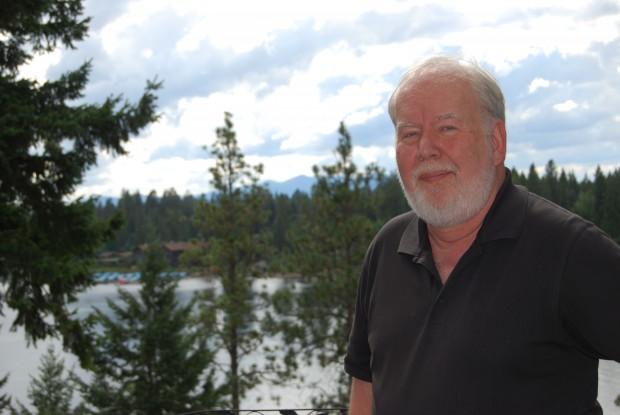Immigration Voices: Why a Conservative Idaho Lawmaker Wants Tighter Controls
Former Idaho State Senator Mike Jorgenson in Hayden Lake, Idaho proposed legislation to make it more difficult for undocumented immigrants to find employment in his state.
I asked Jorgenson: What's the right solution for the estimated 11 million undocumented immigrants living in the United States?
"To go back to Mexico," he said. "To file an application, to go through the process, to get into a work program, and if we have a work program that isn't adequate and we need the workers – that's what everybody is saying, we need the workers – then it's incumbent upon ourselves to come up with a new workers' program."
I met Jorgenson at his home in Hayden Lake, a community of 574 people in northern Idaho not far from the Washington state border. Jorgenson described himself "as conservative as they come." But he added that many Tea Party members and libertarians in northern Idaho consider him a liberal up here.
In 2010, Jorgenson tried to pass legislation that would penalize employers for hiring undocumented immigrants. He proposed instituting an "E-Verify" system to check the status of workers hired in Idaho.
Jorgenson also grabbed headlines in 2010 campaigning for re-election. He vowed to propose an Arizona-style law, which toughened state laws against immigrants living in the United States illegally. In Arizona, local police were directed to question people about their immigration status.
Jorgenson lost to his primary challenger.
Jorgenson seemed OK with that, but he wasn't OK with the labels some attached to his hard-line stance.
"Many people when they first think about an immigration bill use the word, you're a racist. I'm categorically not a racist," he said. "I'm not motivated by racism, I'm motivated by the fiscal impact that it has on our government."
The number of Latinos in Idaho has increased dramatically over the past 15 years, increasing 7 percent a year from 2000 to 2009, according the Idaho Commission on Hispanic Affairs. The state is now nearly 12 percent Latino, according to the US Census. Jorgenson said the ones here illegally drain state coffers.
"For special education, to bring people who don't speak English up to speed so they can be taught, to pay their books, to pay their meals. Many of the hospitals take care of illegal aliens on a free basis, we're required to."
Jorgenson adds to that list the costs for prisons and policing.
All told, Jorgenson figured that undocumented immigrants were costing the state $200 million a year.
Greg Hill, a public policy expert who studies immigration issues at Boise State University, said there's no strong evidence to support this claim. He said, sure, undocumented immigrants can use taxpayer-funded services, but it's not that easy for them to do.
"It's very hard for an undocumented woman to take her child, even if he was born in the United States, to receive social services," said Hill.
"I mean to argue that undocumented workers are shutting down emergency rooms – it's an interesting question – they may be. But do we know they are, is a different question."
Hill added that undocumented workers who use phony social security numbers, as many do, are paying taxes they'll never recoup.
Mike Jorgenson dismissed this as a "meaningless argument." He says it doesn't offset what illegal aliens cost the state overall. And, he said, that cost isn't just monetary.
"Idaho never used to have illegal employees, what we had was we had a lot of high school students who milked cows and did the fruit picking and things like that."
I countered that most every farmer I spoke with in Idaho, and throughout the nation, say they have to rely on immigrant workers because Americans don't want these jobs. It's hard working milking a cow or picking crops.
Jorgenson countered back that Idaho high school students don't even have the opportunity to get those jobs any more. He said, "Those jobs aren't available."
Every day, reporters and producers at The World are hard at work bringing you human-centered news from across the globe. But we can’t do it without you. We need your support to ensure we can continue this work for another year.
Make a gift today, and you’ll help us unlock a matching gift of $67,000!
